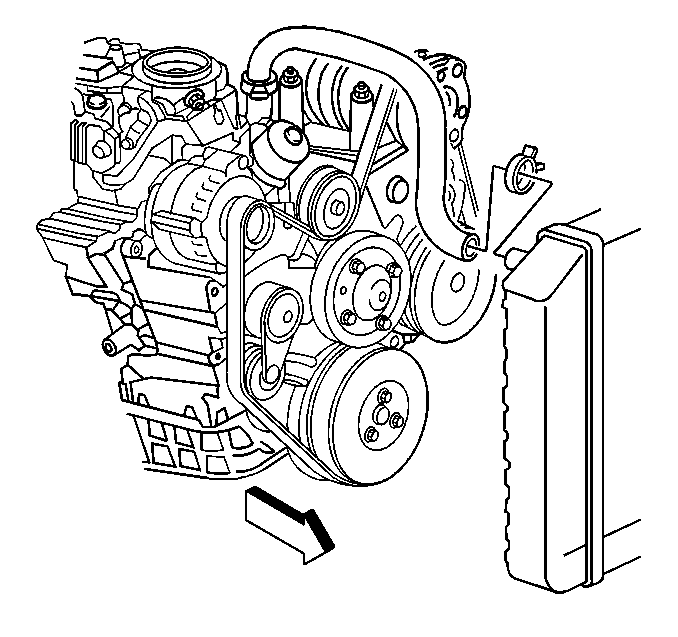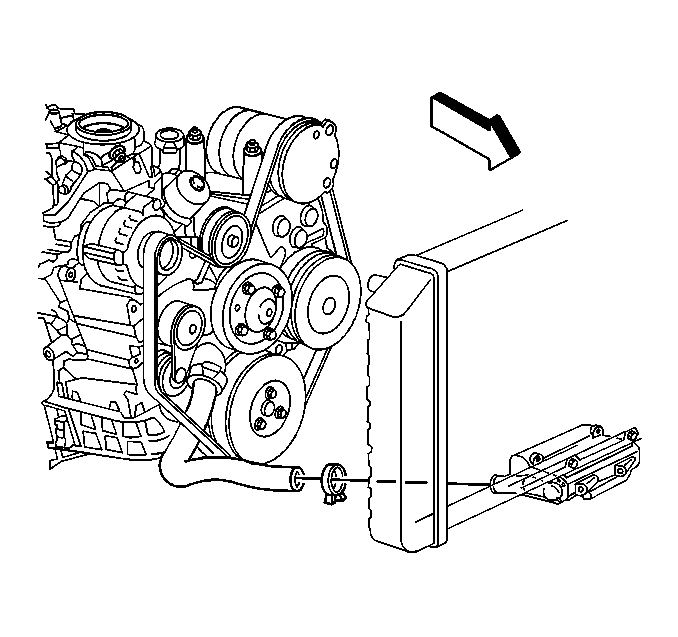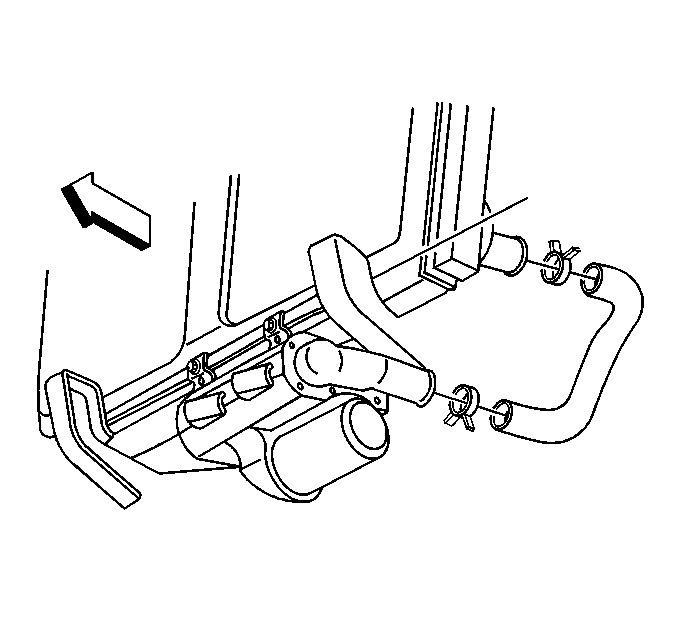Removal Procedure
- Remove the coolant from the radiator until the level is below the hoses being removed. Refer to Cooling System Draining and Filling .
- Loosen the radiator hose clamps.
- Disconnect the upper radiator inlet hose from the radiator.
- Disconnect the upper radiator inlet hose from the engine coolant outlet.
- Remove the steering linkage shield. Refer to Steering Linkage Shield Replacement in Steering Linkage.
- Disconnect the coolant pump inlet hose from the coolant pump.
- Disconnect the coolant pump inlet hose from the oil filter assembly/fluid cooler.
- Disconnect the lower radiator outlet hose from the oil filter assembly/fluid cooler.
- Disconnect the lower radiator outlet hose from the radiator.

Caution: As long as there is pressure in the cooling system, the temperature can be considerably higher than the boiling temperature of the solution in the radiator without causing the solution to boil. Removal of the pressure cap while the engine is hot and pressure is high will cause the solution to boil instantaneously -- possibly with explosive force -- spewing the solution over the engine, fenders and the person removing the cap.


Installation Procedure
- Place the hose clamps loosely on the ends of the hoses.
- Connect the lower radiator outlet hose to the radiator.
- Connect the lower radiator outlet hose to the oil filter assembly/fluid cooler.
- Connect the coolant pump inlet hose to the oil filter assembly/fluid cooler.
- Connect the coolant pump inlet hose to the coolant pump.
- Install the steering linkage shield. Refer to Steering Linkage Shield Replacement in Steering Linkage.
- Connect the upper radiator inlet hose to the radiator.
- Connect the upper radiator inlet hose to the engine coolant outlet.
- Tighten the service type radiator hose clamps, if used.
- Refill the system with coolant to the proper level. Refer to Cooling System Draining and Filling .
- Check the cooling system for leaks. Refer to Cooling System Leak Testing .
Important: The 4.3L uses a spring-type (constant tensioner) clamp at the radiator hose connections. Install the hoses on dry, unpainted surfaces for proper sealing.



Notice: Use the correct fastener in the correct location. Replacement fasteners must be the correct part number for that application. Fasteners requiring replacement or fasteners requiring the use of thread locking compound or sealant are identified in the service procedure. Do not use paints, lubricants, or corrosion inhibitors on fasteners or fastener joint surfaces unless specified. These coatings affect fastener torque and joint clamping force and may damage the fastener. Use the correct tightening sequence and specifications when installing fasteners in order to avoid damage to parts and systems.
Tighten
Tighten the radiator hose clamps to 3.0 N·m (22 lb in).
